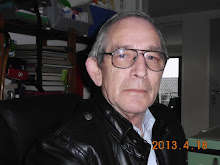Tourist asks a police officer:
If I rent a car here as a tourist, do I need a driver's license, and count
our driving license from Europe?
Agent:
Sir can you drive a car? Does you have a European driving license? OK.
then you can also drive here.
Tourist:
What about your traffic legislation, can I buy a copy from somewhere?
Agent:
(Stupidly surprised) traffic ... .. what? Traffic legislation, what is
that?
Tourist:
Well, laws and regulations that determine what the signs along the road
mean and where you have to keep in attention to, what is permitted or
prohibited, and so on.
Agent: (thinks this is a
fundamentalist again, everything must have been prescribed in detail to know
what is allowed and can, so too lousy to help thunder)
"No, sir, we look and see what is allowed and what is possible on
the basis of the situation, and those who don’t know and make accidents or
lumps, get a beating from the bystanders".
Tourist:
I can see from the traffic lights that people drive through the red. And
you don’t respond to that?
Agent:
(stupidly surprised) "Is something wrong with that? There is no
traffic coming from the other directions, why and what idiot shall be waiting there?
Imagine that you remain standing when you are alone on an empty road?"
Tourist:
With us this doesn’t work, security cameras everywhere, that's a fine
right away.
Agent:
Fine? Why? Oooo ... .., I understand, those cameras cost money, so, you
have to pay them.
Tourist:
But why did you put traffic lights and signs?
Agent:
Well that is because of tourism. Apparently you can’t drive if there are
no signs or traffic lights, otherwise you will drive everything into scrap.
Tourist:
And then those lines on the road, with a dotted line just before and in
the bends, why is that, with us it is different, with a dotted line on the
track and a full one in the bend.
Agent: (again stupidly
surprised)
Of course right on the straight road, because the driver could see the
middle of the track. A straight solid line does not interfere and inform, but
near curves and obstacles or, for lack of overview, a broken line, which works
all-rarely and makes the driver attentive.
Tourist:
Then why do you have police?
Agent:
Many tourists who are afraid when they see no police, others who don’t
know how to behave. We did not need Police before.
Tourist:
And do you have courts?
Agent:
Yes, of course, but it is not the right place to walk when it rains in
the monsoon season.
Tourist:
No, I mean places where people speak justice and disagreements or crimes
are treated and judged or condemned.
Agent:
Oooo… Yes, because of increasing tourism, today we have such legal
buildings to the Western model.
Tourist:
You therefore have law books such as civil law.
Agent:
I once heard that some lawyers have a civil code from during the
colonial occupation, but only use it as decoration, but sometimes also to get
ideas what people used to do in certain cases. We also have our own modern code,
"General legislation and agreements"
Tourist:
Only one? That will then be a very bulky book.
Agent:
Bulky, yes, certainly, surely a 5 pages, still enjoy a lot? That is, of
course, due to the modernization and complexity of modern society. In the past it
was the same wherever one walked or drove with a bike. Now with the rise of
motorcycles and cars, there is a law that stipulates that one must stay left of
the track, to avoid confusion at higher speeds such as 20km and more per hour.
Our general basis for legislation in dealings, trade and traffic is based on a
number of principle agreements, which stipulate that the weakest has precedence
of the strongest, but of which no abuse or exclusive right may be made.
Furthermore, there are provisions that are directly linked to modernization and
modern infrastructures and possibilities, to regularize specific modern
possibilities and to meet international requirements.
Tourist:
What happens if a serious accident with a fatal outcome or a murder
happens, are you deployed?
Agent:
Of course we rush directly to the scene of the calamity, but first check
if there is no popular anger caused by it, in such a case we stay safe at a
safe distance from the coast, and then pick the criminals or death rider from
the trees If they have at least done a floundering, which is usually the case,
since the angry crowd does not leave sooner.
Tourist:
I think I'd better hire a local driver with his own vehicle, for my tour
through the country.


